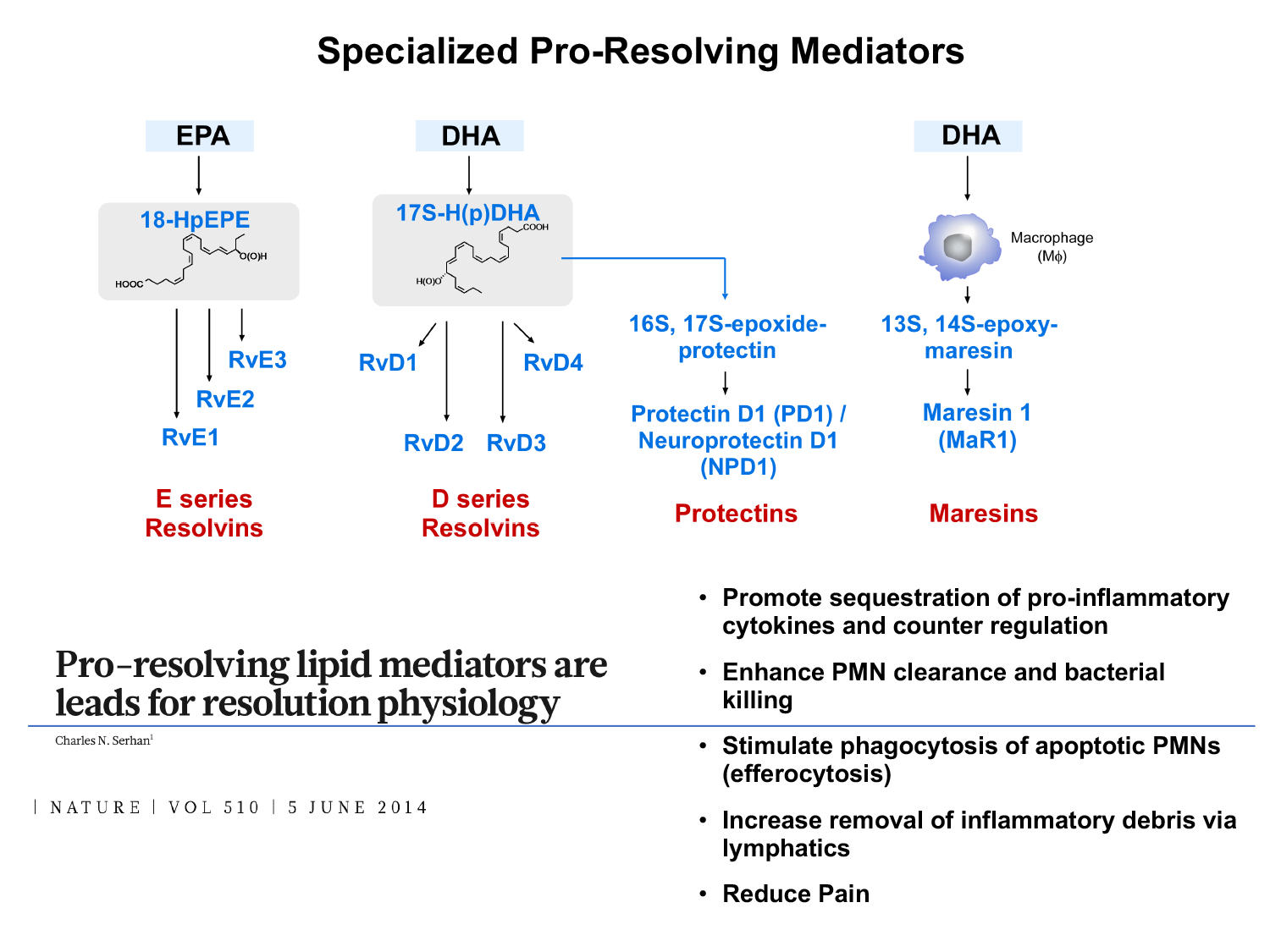You are here
Resolvins in Inflammation and Infections
Speakers
Abstract
Uncontrolled Inflammation is considered as an integral component today of many diseases e.g., arthritis, periodontal disease, asthma, cardiovascular diseases and neurodegenerative diseases as well as poor nutrition and aging. To map tissue and molecular events in the resolution phase of self-limited inflammation, we’ve used a systematic approach interrogating exudates, cell traffic and identification of novel chemical mediators. In resolving exudates, we’ve identified 3 separate structurally distinct families of potent endogenous mediators named resolvins, protectins and maresins (macrophage mediators in resolving inflammation). These families are collectively coined specialized pro-resolving mediators (SPM) and are biosynthesized from essential fatty acid precursors. We’ve established the complete structures of the SPM, their biosynthesis and total organic synthesis focusing on defining their potent and novel functions in vivo animal disease models. Each member of the SPM superfamily is a proresolving mediator possessing potent multi-pronged anti-inflammatory, anti-microbial actions as well as stimulate tissue regeneration. Mapping of these resolution circuits has provided new avenues to probe the molecular basis of many diseases (for general over views see CN Serhan & BD Levy JCI 2018; CN Serhan, Nature 2014). This presentation will focus on our recent advances on SPM biosynthesis and functions in the regulation of inflammation in human model systems and mouse DVT. We operationalized LC-MS-MS based mediator metabololipidomics to profile SPM in tissues. These findings indicate that failed endogenous resolution pathways may underlie uncontrolled inflammation in human disease and opens the potential for resolution-based physiology and pharmacology.


